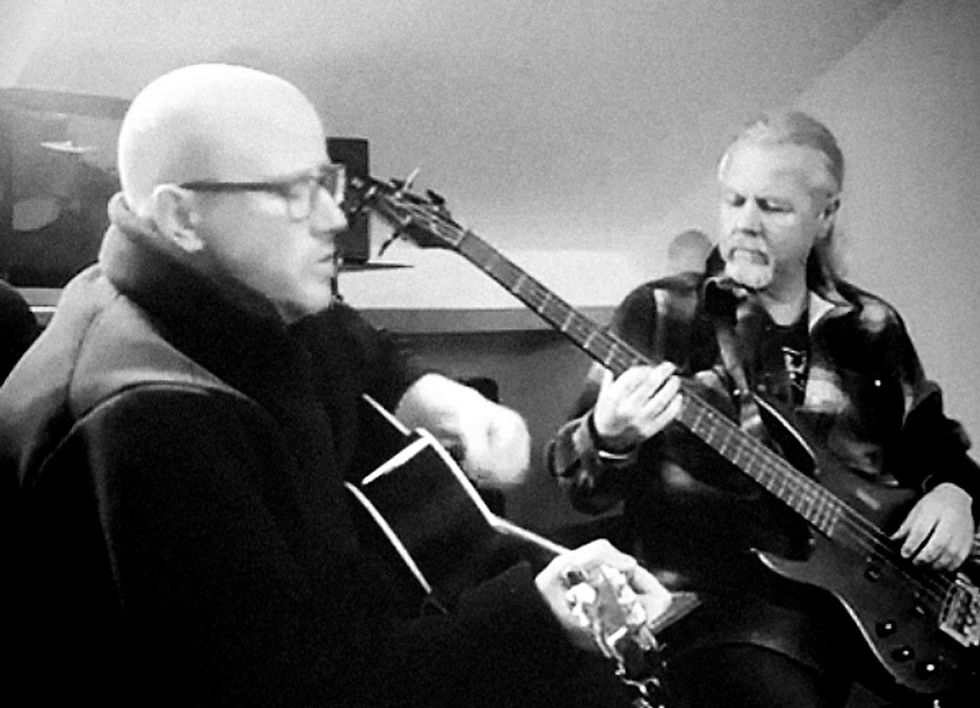Journalism is actually the first rough draft of history
- Phil MacGiolla Bháin

- Jun 25, 2025
- 3 min read
Updated: Jun 26, 2025

IT IS perhaps the human condition to take for granted your good fortune. However, I have no excuse for failing to regularly remind myself that for the past 30 years, I’ve been able to call Ireland’s best-kept secret my homeplace.
My mood was upbeat as the days incrementally lengthened towards the Summer Solstice. It’s a time for hope, and seeing these sunsets illuminate Oileán Thoraí from the top of Carn Traonach makes me stop, think, and smile. Of course, I could see a similar vista across Clew Bay to Clare Island from the Quay in my father’s hometown of Westport.
However, Donegal is different. Geography plays a part, for sure, but so does the troubled past of this part of the island. Partition ensured that this most northerly county in the new Free State would develop a unique place in the Dublin-based polity.
Our nearest neighbours are in Derry and Tyrone, which is just one reason Revisionism never caught on here. The reality of a partitioned island and the grim nature of the Orange State run from old Stormont was impossible to ignore. When the Bogside breathed CS gas in 1969, it was over the Border to Donegal that refugees came flooding, often to the homes of close relatives.
I thought of this recently in St Columb’s Hall in Derry. My branch of the National Union of Journalists (NUJ) organised an event to honour our member, Eamonn McCann (above). His memoir of those barricade days in Derry, War and an Irish Town, remains a masterpiece of contemporaneous political analysis and anecdote. I’ve had my copy since Pluto Press published it in 1980—the first edition initially hit the bookstores in 1974. Eamonn honoured me by finally signing my copy after all these years.
In an entirely impromptu way, I found myself at the lectern, saying a few words about the man with whom I’ve been journalistically connected for 50 years. Yes, half a century!
One of the tasks that you should set yourself as you enter the winter of your life is to find your people. In that hall was my tribe. They’re a difficult bunch who don’t take anything at face value, constantly distrust those in power, and believe that the public should be told what their rulers are up to. That’s a functioning Fourth Estate; without it, any democracy is on life support.
It’s the Jeffersonian observation that people in power can’t be trusted and must be watched constantly. The exclusion by Israel of international journalists from Gaza to go there and freely report what is going on is very much a case in point.
Distrusting those in power is also true of those who—as Benjamin Franklin said—buy their ink in barrels. Consequently, without the collective power of trade union organisation, media oligarchs will extinguish genuine journalistic scrutiny.
If William Randolph Hearst and William Martin Murphy had one thing in common, it was their dislike of collective bargaining. This newspaper exists, quite literally, as the voice of a community that has been systematically socially excluded in modern Scotland. It is a set of societal principles that the people of Derry would have no problem recognising.
A significant factor in lighting the fire of resistance in Eamonn McCann’s youth was an educated generation of Derry Catholics who would not accept what their parents and grandparents had been told was their lot. The days at the back of the bus in the Six Counties were over, and frontline journalism was a key part of the paradigm shift.
Not far from the hall is the Derry Girls mural, which is a testament to the brilliant relevance of Lisa McGee’s creation. The TV series is a powerful symbol of the cultural confidence of the city’s post-conflict generation. It states with hilarious clarity that the old gerrymandered straitjacket of municipal boundaries and sectarian discrimination is something to be studied as history, not endured as a reality.
That bit of political chicanery was the Derry that Eamonn McCann and his community had to contend with. What their stern, hateful rulers in the Guildhall didn't realise was that they were incubating an uprising.
Every generation needs its storytellers like Eamonn McCann and Lisa McGee. As a playwright and novelist, I know that creative writing, whether for the page, the stage, or the screen, can strike a telling blow to the powerful.
Regardless of who originally coined the observation, the following remains a touchstone for everyone who was in St Columb’s Hall to honour one of our own—Journalism is the first rough draft of history.
Fair play, Eamonn!
Phil Mac Giolla Bháin is an author, playwright and journalist based in Donegal. He was a staff reporter and columnist on An Phoblacht for many years. His novel Native Shore, a political thriller with a strong Glasgow Irish theme, is available at Calton Books







Comments